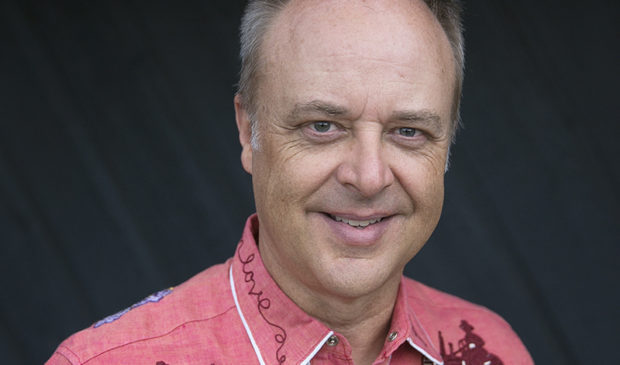Shifting SXSW focus, permitting changes await music head upon return
Monday, February 20, 2017 by
Chad Swiatecki Returning South by Southwest to its focus on industries and helping to usher components of the city’s plans to help the local music industry are high on the personal to-do list of Don Pitts, until recently the director of Austin’s Music and Entertainment Division.
Pitts, who resigned from his position on Feb. 14 but later agreed to stay on as a consultant through April 29, said he’s looking forward to returning to work that will immediately focus on helping the city prepare for the 10-day festival. His resignation followed a monthlong administrative leave caused by his improper handling of a staff disciplinary issue.
His work around the Austin music community has been overshadowed since January, when it was announced that he was put on administrative leave. A report from the city’s auditor that was released Friday found that Pitts failed to report attempts by a now-former employee to fraudulently be reimbursed $2,500 in expenses incurred on a “zero-cost” trip to Europe taken for city business.
Pitts became aware of the improper reimbursement and had the employee return the money to the city in 2015, but didn’t advance the matter as a disciplinary issue. His resignation letter and response to the auditor report both state that he gave his resignation because he realized his private sector background and mentality had become a bad fit for the deliberate, by-the-book pace of public work.
“What the situation boils down to really is that I didn’t follow stated City protocol,” he said in his response letter. “I fixed what I thought was a mistake and insubordination, but I didn’t report it correctly. I have nothing to hide.”
In an interview with the Austin Monitor, Pitts focused on the work that he will continue through April. He said that the disappearance of multiday, consumer-focused events such as Fader Fort, Hype Hotel and the Doritos Bold Stage that were largely unconnected to the festival will make this year’s SXSW less sprawling and easier for the city to manage. Get a look at the outdoor events approved by the city here.
That shift, he said, has been welcomed by city officials and SXSW organizers.
“It’s going to become more of what we wanted it to be, which is more of an industry event, and everyone sees that as a great thing instead of what’s happened with the larger events taking over entire parking lots all over the city,” he said. “It’s going back to its roots.
“The landscape is changing in the city,” Pitts continued, “and the simple fact is you don’t have vacant lots anymore downtown because they’re all getting built on. That may impact the overall economic benefit of the festival some, but I think the folks swinging through on spring break weren’t contributing to that as much as we’d like to think, and it took more resources to manage all that.”
Beyond the festival’s March 10-19 run, Pitts said his exact list of duties will come from Alex Lopez, deputy director of the city’s Economic Development Department.
He said it’s likely that some of that time will be spent preparing the music division to operate until his successor is found. Other possible issues facing him include the May implementation of a pilot program for later sound curfews on clubs along Red River Street, moving forward with the creation of a platform to help local musicians increase revenue streams from their work and helping however he can on shaping the “agent of change” and entertainment venue licensing efforts.
While Pitts spoke sparingly about the licensing issue while he was still a full-time city administrator, he’s now open on his thoughts about the need to move the licensing and related enforcement out of the music office, which was created to help grow the local music economy but was pulled into a “sound police” focus shortly after its formation.
“I don’t think (licensing) should be there, and you’ve got to get that out of the music office for that office to operate effectively,” he said. “Hopefully they can find somewhere else to put it, because it’s easily a 40-hour-a-week responsibility, which meant I had to spend maybe 10 to 15 extra hours a week on what was the actual mission of the department.
“The city needs responsible regulation, and the challenge is finding someone who understands the uniqueness of that industry,” Pitts said. “You don’t want anyone to come in with heavy hands when it comes to working with venues, musicians and the industry.”
Pitts, who worked for nearly two decades in entertainment relations with Gibson Guitar prior to joining the city, said he’s in talks with multiple cities about working as a consultant to help improve their music scenes and economies.
Download (PDF, 1.12MB)
The Austin Monitor’s work is made possible by donations from the community. Though our reporting covers donors from time to time, we are careful to keep business and editorial efforts separate while maintaining transparency. A complete list of donors is available here, and our code of ethics is explained here.
You're a community leader
And we’re honored you look to us for serious, in-depth news. You know a strong community needs local and dedicated watchdog reporting. We’re here for you and that won’t change. Now will you take the powerful next step and support our nonprofit news organization?









